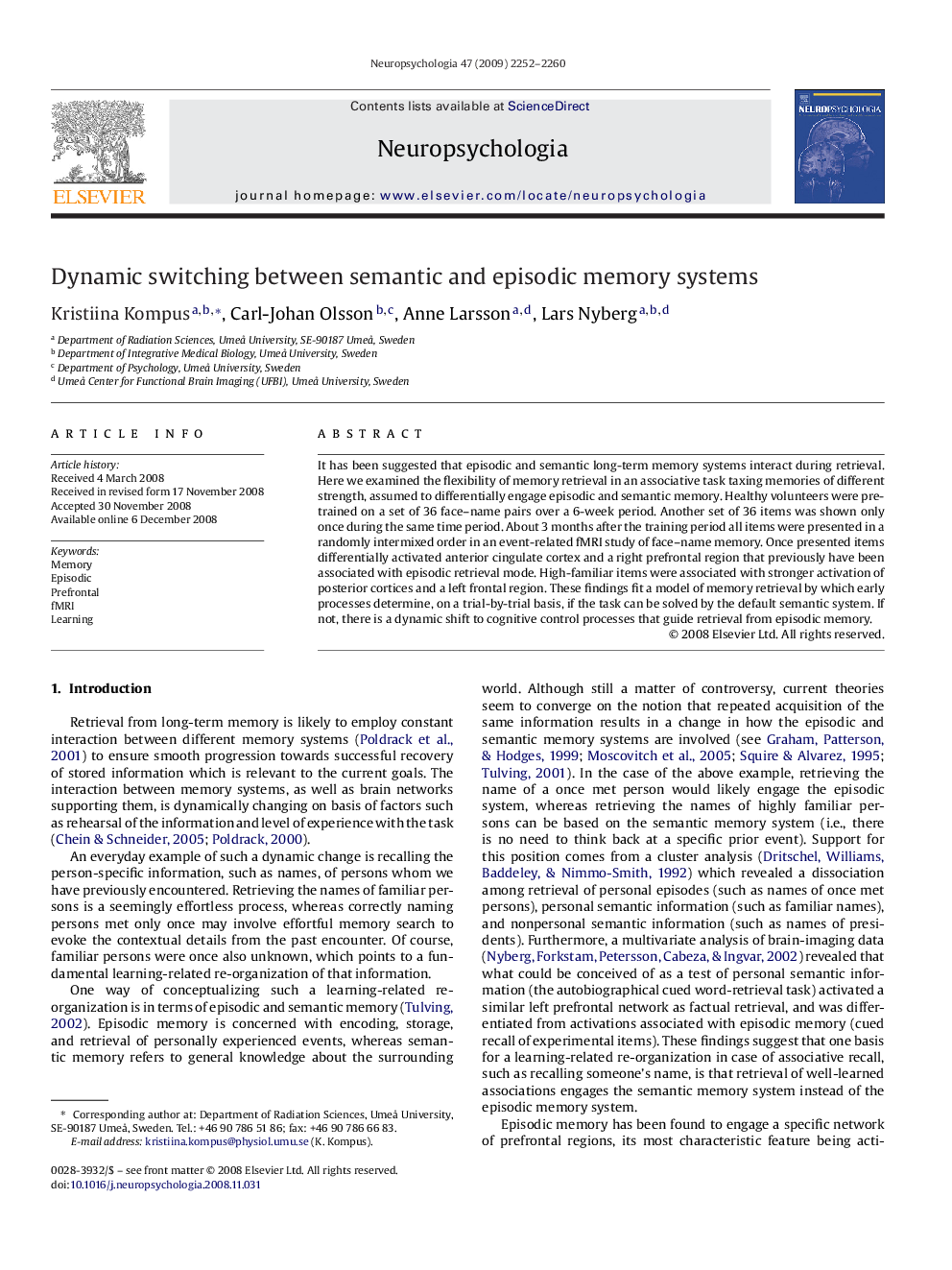| Article ID | Journal | Published Year | Pages | File Type |
|---|---|---|---|---|
| 945148 | Neuropsychologia | 2009 | 9 Pages |
It has been suggested that episodic and semantic long-term memory systems interact during retrieval. Here we examined the flexibility of memory retrieval in an associative task taxing memories of different strength, assumed to differentially engage episodic and semantic memory. Healthy volunteers were pre-trained on a set of 36 face–name pairs over a 6-week period. Another set of 36 items was shown only once during the same time period. About 3 months after the training period all items were presented in a randomly intermixed order in an event-related fMRI study of face–name memory. Once presented items differentially activated anterior cingulate cortex and a right prefrontal region that previously have been associated with episodic retrieval mode. High-familiar items were associated with stronger activation of posterior cortices and a left frontal region. These findings fit a model of memory retrieval by which early processes determine, on a trial-by-trial basis, if the task can be solved by the default semantic system. If not, there is a dynamic shift to cognitive control processes that guide retrieval from episodic memory.
